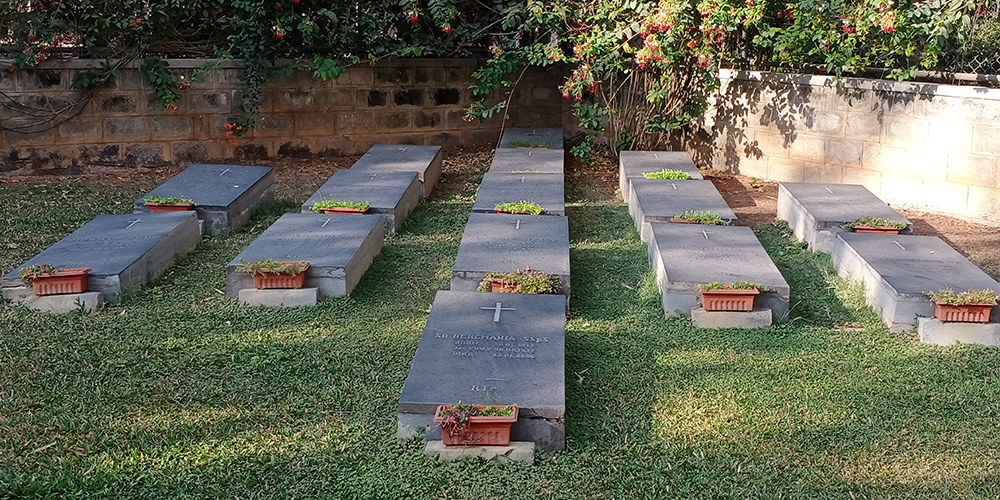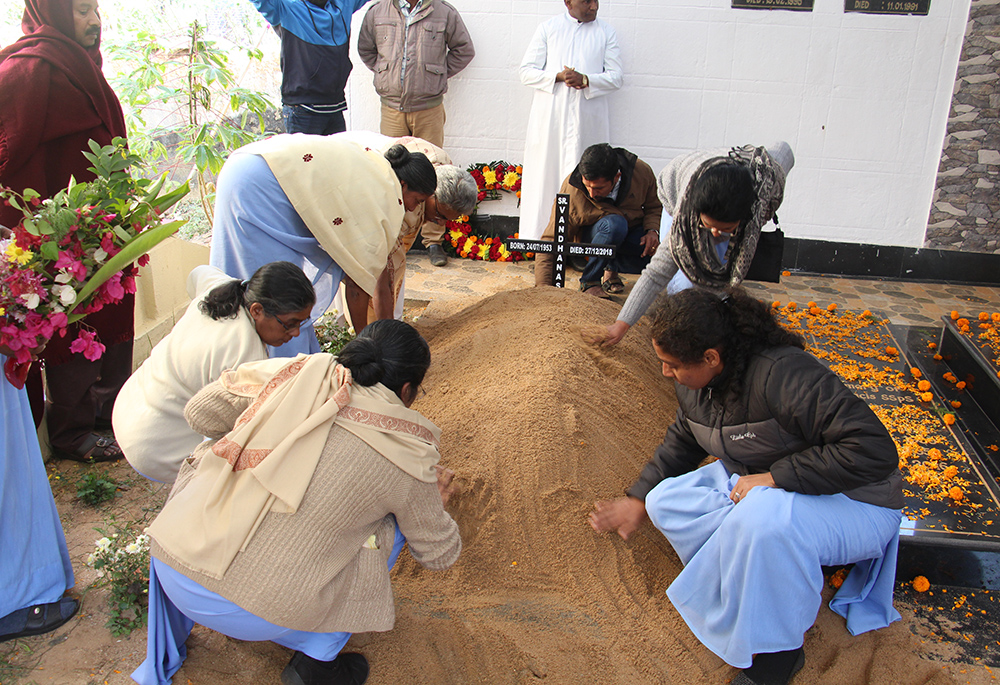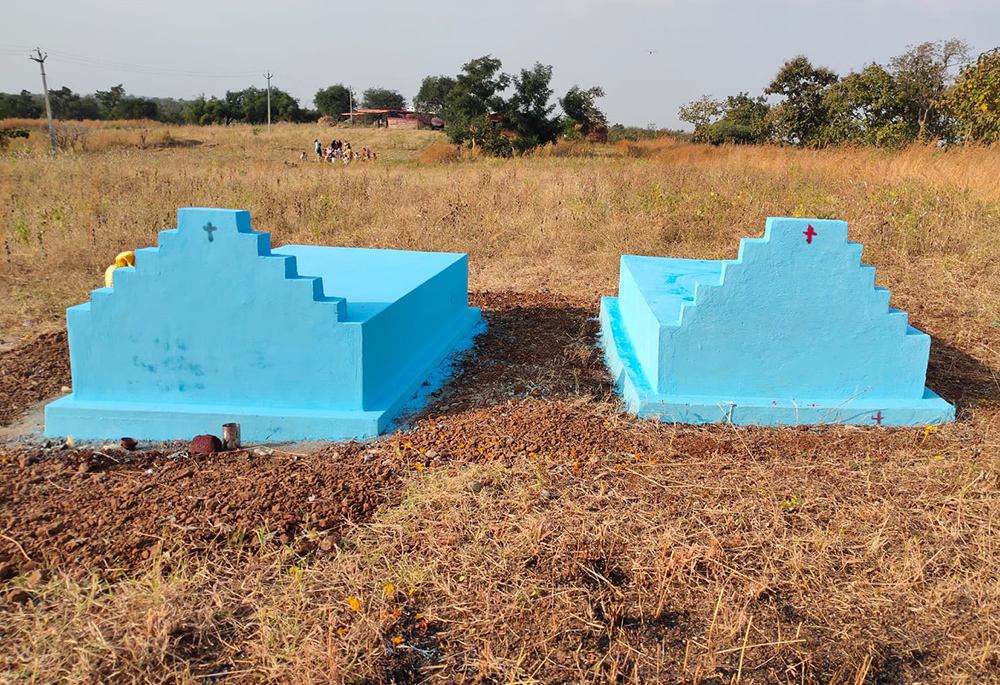
(Unsplash/GR Stocks)
November hails the true seasonal experience of autumn or fall. The trees shed leaves, and wait through the winter for spring. They experience a temporary death, where everything seems barren. However, it is just a short break for revival.
Just like with nature, we too die many deaths, before we complete the permanent one. We are on the fugitive stand — come today, gone tomorrow — just like the water flows down and merges with the ocean; like the leaves that fall to give way for new shoots, we too pass on without any strings to hold on.
In the early days of the coronavirus pandemic, one of my friends would jokingly say, "When you die, I will be there to say office for you." Less than a year later, he succumbed to COVID-19, which I still perceive as one of his pranks. The stiffness of death was never felt as much as during the second wave of COVID-19 in 2021. The world turned into a morgue; phone calls and messages were received with dread. The reality of death was dancing before everyone's eyes.
Most of us still can't fathom that some of the contact numbers in our phones will never be answered by the persons who owned them. There are some WhatsApp chats we never want to clear. We mourn the deaths of others without realizing that our moments are numbered. Death is a dreaded reality, always perceived as something meant for someone else.

GSR contributor Tessy Jacob took photos of different cemeteries in India that illustrate different cultures. In this photo, neatly laid tombs belong to European missionaries, who were part of the congregation of the Missionary Sisters Servants of the Holy Spirit in India. (Tessy Jacob)
In the tradition of the Catholic Church, the month of November is a reminder of the shortness of our life here on earth and the hope for eternal life for which we are destined.
My grandfather taught us a prayer, which prepares one for a happy death. As a kid, I thought I didn't need to learn it "now"; I thought, "When I grow old, I will pray daily," because death was meant for old people! One of my aunts had the privilege of preparing people for death. Once I witnessed her praying loudly, "Jesus, Mary, Joseph, keep my soul safe," into the ear of the person who was passing away. She explained that when we accompany people to death, there will be someone accompanying us at our deathbed as well. However, a few years later, this aunt died of cardiac arrest and was found dead in a washroom, hours after her death.
Death is a painful reality, and it is the only factor that we are sure about in life. Poets glorify it, philosophers emancipate it, and the positivists illumine it, and all of us live unmindful of it! It is not cool to pray for a happy death, as it is to pray to wake up in the morning. We do not leave the house paranoid about whether we will come back in the evening. No, such amplification of preparation for death can make us dysfunctional, rather than productive. We are not Jesus; we cannot predict and foresee our death. But with Jesus, we need to live life in such a way that we go peacefully when our race is completed here on earth. We need only to live in the present moment, given as a grace of God, in fidelity to God's will.

Sisters arrange flowers and level mud with their hands in Odisha (in the east of India), at the tomb of one of the sisters. (Tessy Jacob)
When we fail to live in the present moment as grace, we allow our egos to take over and our relationships with others can suffer. In the competitive race of pursuing the best, we trample on many people's feelings. Does it happen only in the career field? No, it's more frequent in our own close circles than at workplaces. Derogatory remarks, the denial of deserved acknowledgement, missed opportunities, betrayals, discrimination, and similar actions can push a person to the brink of a near-death experience. It's the murder of the personality, and in this case, the pain impacts the victim alone, while others remain unaffected.
Character assassination is the most significant form of euthanasia on earth. It is a heinous crime that can leave the other person weakened for ages. The degree of mental stamina required to bounce back from such a traumatic experience varies from person to person.
Communication is said to be the lifeline of a relationship. In an era of virtual communication, where words hold more significance than voice, we find an easy way to express ourselves to others through emails and messages. We have lost the sanctity of dialogues, we undermine the tone and sensibility in human voices. Highly sophisticated means of communication have worn down the beauty and sensitivity of speaking and listening from the heart. When the lifeline is severed, life is extinguished.
Advertisement
Death serves as a reminder when we think we are invulnerable on earth! Most of us live with the confidence that we have an unlimited number of years to live. Certainly, we cannot be constantly paranoid about the exact hour of our death and still live in the present moment. The question is — are we truly irreplaceable?
Yes, we are, because each person is a unique creation. For example, while there may be others with similar intellectual capabilities to Albert Einstein, there will never be another Einstein. The loss of our dear ones is irreversible, and the void they leave behind remains. However, we are not immortal, and the world will not need us eternally. We ultimately have to depart, no matter how important we think we are.
The passing of each person marks the closing of a chapter in history. There are some people who are so exceptional that we never want to lose them — a parent, sibling, social figure, spouse, or friend. They made a huge impact while living, and it is hard to forget them. We miss their goodness.

A cemetery located in the interior villages of India is pictured here, where a mother and a son who died a few years apart are buried side by side.* (Tessy Jacob)
Reflecting their goodness in our life is the task they have left behind for us. When I say, "My mother was a kind woman," can that kind woman continue to live through me? Can I be another Mahatma Gandhi, Nelson Mandela, or Mother Teresa?
In the story of two young priest siblings, when the elder one, an exceptionally talented artist, died in a fatal car accident, the eulogy by the younger brother was profoundly moving: "When an artist completes his masterpiece, he leaves the place, dips the brush in the water, shakes off all the colors, and leaves the scene without any trace of the creator." Ultimately, this applies to all of us — whether we depart early or later in life.
May our actions speak louder than any word. They will be our legacy, rather than our titles or positions.
What will your legacy be?
*This column has been updated to correctly identify the two people buried in the third photo.







